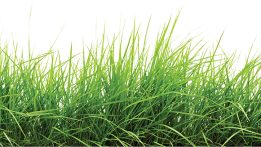Many types of hazardous waste can be easily spotted. But think about that bottle of bleach under the kitchen sink or the brake fluid in the garage. These, and many other everyday products, have the potential to harm human health and the environment.
Paint, drain openers, tile cleaners, insect killers and nail polish are just a few of the household products made with potentially dangerous chemicals. Careless handling can result in accidental poisonings, indoor air pollution or the risk of fire.
When dumped on the ground or into a storm sewer, household chemicals enter the groundwater, which is the main source of drinking water in Florida. When tossed in the trash, these wastes can contaminate landfills and the water supply.
Any product is considered a potential threat when it has toxic ingredients, can catch fire or cause burns, or can react or explode when mixed with other substances.
Common household hazardous waste products
- Acids
- Adhesives and glues
- Aerosol cans
- Ammonia
- Animal care products
- Art and hobby paints
- Batteries
- Bleach
- Caulk
- Car wax and cleaners
- Charcoal lighter fluid
- Disinfectants
- Drain cleaner
- Fabric dyes
- Fertilizer
- Fingernail polish and remover
- Fluorescent lights
- Fuels and automotive fluids
- Fungicides, insecticides, pesticides
- Furniture polish and wax
- Laundry detergent and products
- Lighter fluid
- Lubricating and motor oils
- Mercury
- Mothballs
- Organic solvents
- Oven cleaner
- Paint and paint products such as strippers, rust paints, stains and finishes
- Photographic chemicals
- Pool and spa chemicals
- Septic tank cleaners
- Shoe polish
- Toilet bowl cleaner
- Tub and tile cleaner
- Windshield wiper fluid
Keep in mind these tips for handling household chemicals:
- Always keep products in their original containers and out of the reach of children and pets. Don’t reuse an empty container.
- Properly stored hazardous materials have a longer shelf life. Follow label directions.
- Buy only what you need, and use what you buy or give it to someone who can use it.
- Carefully follow the label directions for use. More is not always better.
- Do not store corrosives, flammables and poisons together.
- Never mix household chemicals or different brands of the same product. Bleach mixed with toilet-bowl cleaner can produce toxic fumes, or motor oil that comes in contact with pool chlorine can spontaneously ignite.
- Don’t burn or bury hazardous household wastes; don’t pour them on the ground or down a storm drain. Make sure it’s safe before pouring chemicals down the sink.
- Choose housecleaning products that are nontoxic, biodegradable and free of phosphate, bleach and dyes. Another option is to make your own cleaners. Look for do-it-yourself green-cleaning recipes that use lemon juice, vinegar or baking soda. DIY recipes are effective, easier on the wallet and produce less fumes.
- Fluorescent lightbulbs, which contain small amounts of mercury, should be handled and disposed of carefully. Visit http://www.dep.state.fl.us/waste/categories/hazardous/pages/household.htm for an easy tool to help locate recycling sites for fluorescent lamps, batteries, motor oil and other waste.
Leon County residents can drop off household hazardous waste and electronics at the county’s Hazardous Waste Center. The center, at 7550 Apalachee Parkway, is open weekdays and Saturdays. ![]()
By Susan Beason,
Florida Department of Environmental Protection




